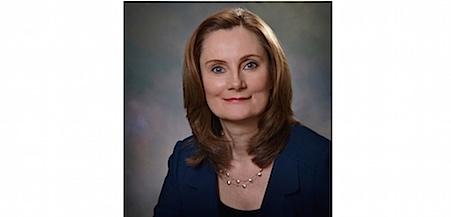
By Adam Woodhall — Pat Harned leads the Ethics and Compliance Initiative (ECI), regularly engaging with leaders of global corporations and the US Department of Justice as well as testifying before Congress. She was named one of the ‘100 Most Influential People in Business Ethics’ in 2014. In this conversation, she shares how culture trumps compliance, the key to reducing corporate risk and her volunteer role as a baby cuddler.
AW: Tell me about the organisation you lead.
PH: ECI is a number of things; a research think tank that endeavours to understand what an organisation can do to promote integrity, a membership association of over 500 organisations dedicated to establishing high quality ethics programmes, and a provider of certification of practitioners in our field. The aim is to help guide the very formal communications from the top and support development of the informal practices that either lead people to uphold standards or to cut corners.
Whilst the organisation is US-based, we have reach around the world—increasingly, as companies are expanding their global footprint. Just last year we did our first ever global business ethics survey in 13 countries to gauge trends in ethics and compliance around the world. We also partner with organisations in Europe to host the European Business Ethics Forum each year.
AW: Give me a little flavour of yourself.
PH: I have been with the organisation since 1999, starting with a schools programme called ‘Character Development’. Over time I got more and more involved in the business and corporate outreach of our organisation. Since 2004 I have been first President and now CEO, and it’s just been a lot of fun. I love this field and I’m constantly challenged and always growing.
Outside of work I’m an avid reader and just had a book proposal accepted by a publisher. I also volunteer at my local hospital. My official title there is a “Cuddler”—my role is to sit in a rocking chair with a premature baby and rock back and forth. This is great for the babies as human touch is a powerful thing, and it helps me to relax and unwind, as after a hard week I sometimes feel like I need to be cuddled!
AW: Why is corporate culture important?
PH: It’s the kind of thing that doesn’t get talked about very much until an organisation has big problems. And then on the other side of those problems, there’s always a conversation about what went wrong and how did things become so bad and why didn’t somebody raise a flag?
Corporate culture ends up being part of the answer to that question. It is the thing that ultimately determines what people really do on a daily basis. It’s the informal assumptions and directions, the way we really do things, and it turns out that culture is far more powerful than any policy or leader in the organisation. A lot of people have probably heard the phrase ‘culture trumps compliance,’ and that is indeed true.
AW: When it comes to ethics, what is it that organisations look for?
PH: I think one of the biggest concerns is, if an organisation is going to experience misconduct, will they we be aware of it? The global survey that I mentioned earlier found, that on average, 33% of workers in for profit organisations observed some kind of wrongdoing each year. Therefore, every company out there is going to experience somebody in the organisation who’s doing something wrong. What our members want to know is, if somebody’s aware of another individual overstepping, will they tell us?
What we find is when a company invests and develops a good system for communicating their standards of conduct, when they provide channels and training to supervisors to help employees come forward, they do see strong percentages of people who will report wrongdoing. Another important measure is, what percentage of people think they work in an environment where integrity really matters? When we work with companies that have really taken that issue seriously, 80 to 90 percent of employees will say, “This company has a strong sense of integrity. We take our standards seriously”.
AW: Can you give an example?
PH: We go periodically to organisations that are a part of the defence industry, and we use the same question set among employees, to gather information about what are the challenges that employees face, such as what kind of misconduct have they observed, and if they observed it, did they report it? And then we provide comparisons over time.
One of the things that we found is that in organisations like Lockheed Martin that have really invested in their ethics programmes, their employees say they have strong cultures. Almost 100% of their people are aware that there’s a set of standards for business conduct. If there are problems they’re willing to raise them. So, we’ve seen a reduction in the things that these companies don’t want and an increase in the things that they do want.
AW: If there is one message you’d like to give out, what would it be?
PH: I would say that after being in this field for 20 years, if people don’t feel they’re in an environment where they can raise concerns, then you have big, big corporate risks. Therefore, the most important thing that an organisation needs to be monitoring is how willing people are to come forward and report wrongdoing.
TriplePundit has published articles from over 1000 contributors. If you'd like to be a guest author, please get in touch!














